Tennis is a sport that you can enjoy for a lifetime, but to ensure that you can play well into your advanced years, incorporate a stretching routine before and after a match. As a full-body workout that blends agility, speed, and power, tennis requires using all your major muscle groups, including the shoulders, back, hips, and legs, so make sure to warm up all of these muscles with a variety of exercises and cool down with a stretching routine to prevent injuries. This article will explore some of the best stretches that are specifically beneficial for tennis players.
Dynamic vs. Static Stretching
There are two main types of stretching, dynamic and static. Dynamic stretches are active stretches where you stretch your muscles while using them, whereas static stretches are what we typically think of as stretching. In other words, dynamic stretches are movement-based stretches, and static stretches involve holding a stretch for a certain amount of time.
Begin with 5-10 minutes of general body warm-up, such as jogging or another light aerobic activity like jumping rope. Once your muscles have warmed up, you can do a series of dynamic stretches to prepare your muscles for use during the match. After a match, it’s crucial to do static stretches during a cool-down to prevent injuries.
Dynamic Stretches for a Pre-game Warm-up
The following exercises are some suggested dynamic stretches that you can do before your match.
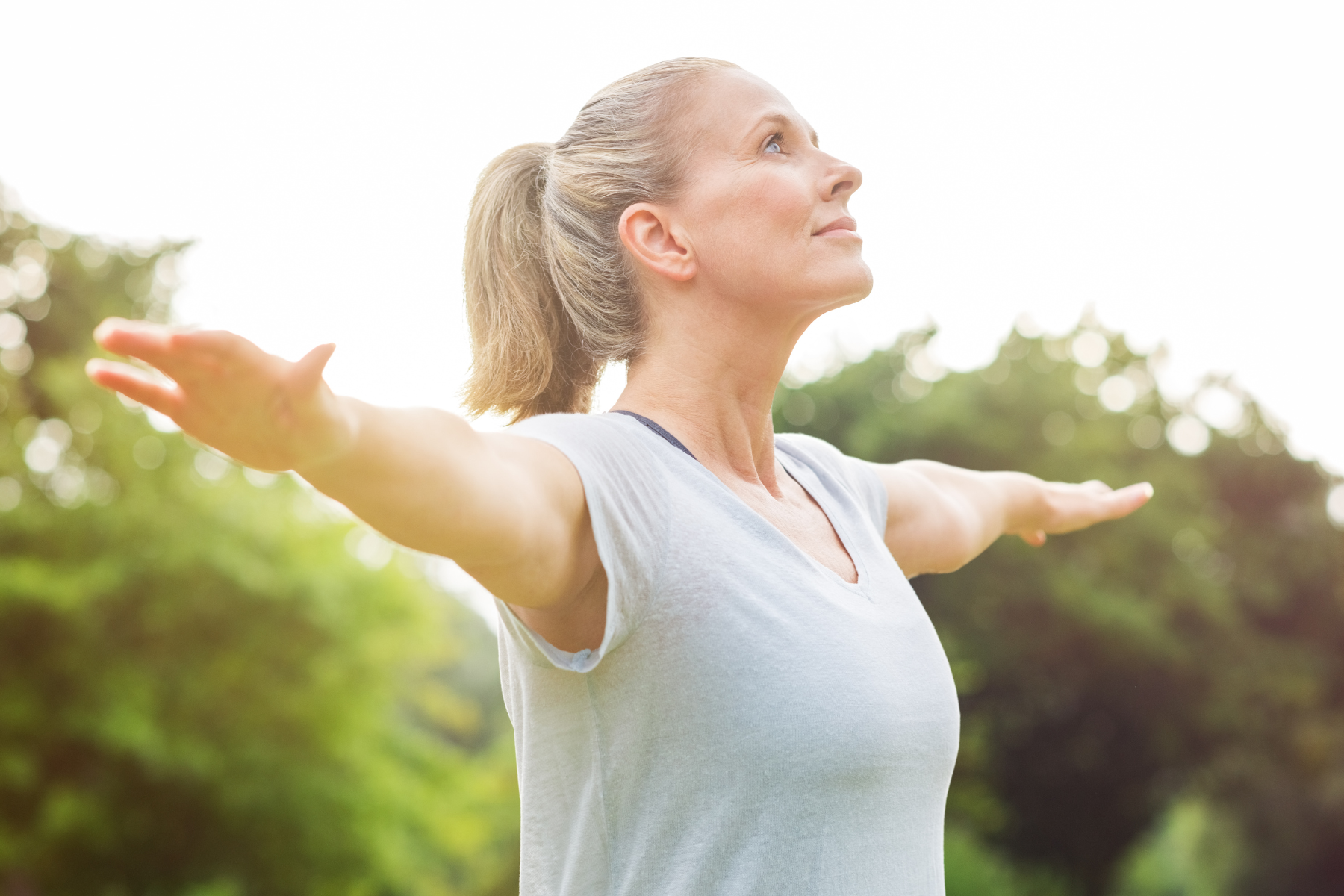
Source: Rido on Canva.com
Arm Circles (forward and backward)
Purpose: Loosens the shoulders, essential for powerful serves and overhead shots
How to Do It:
- Stand with your feet shoulder-width apart.
- Extend your arms out to the sides.
- Make small circles, gradually increasing the size.
- Do 20 seconds in each direction.
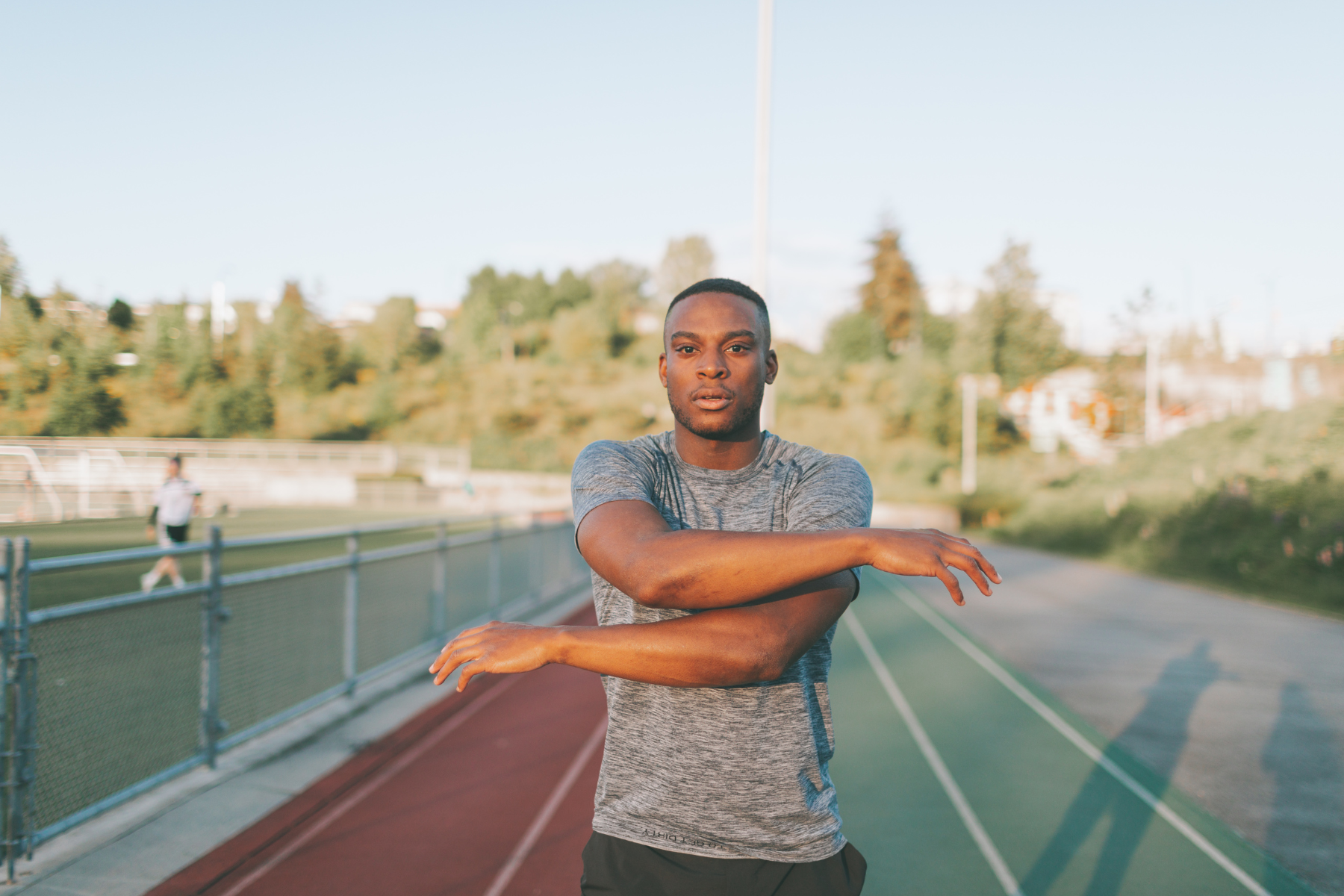
Source: Crystal Sing on Canva.com
Arm Swings
Purpose: Enhances shoulder flexibility, vital for serving and volleying
- Stand with your feet shoulder-width apart and your arms relaxed at your sides.
- Swing your right arm across your body towards your left side, allowing your left arm to swing across your body towards your right side simultaneously.
- Quickly bring them back as far as you can.
- Repeat this motion with your left arm swinging across your body towards your right side, while your right arm swings backward.
- Repeat this for a set of 12 repetitions.
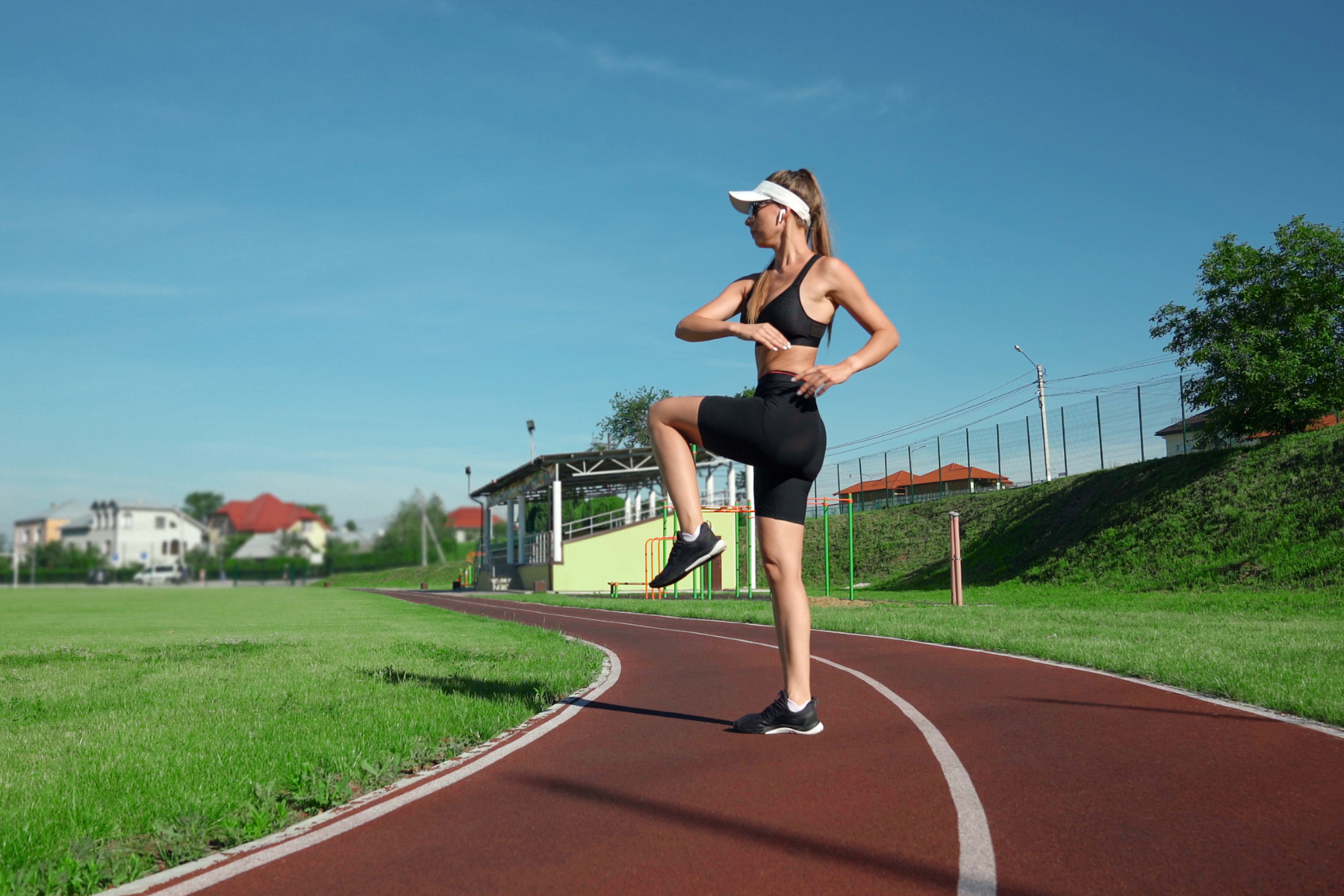
Source: SerhiiBobyk on Canva.com
High Knees
Purpose: Promotes better running mechanics and footwork
- Stand tall with your feet hip-width apart.
- Begin jogging in place, lifting your knees as high as possible with each step.
- Aim to bring your knees up towards your chest while maintaining a brisk pace.
Leg Swings
Purpose: Enhances your range of motion for quick lateral movements
- Find a wall or sturdy object to hold onto for balance.
- Stand sideways with one hand on the support and your feet hip-width apart.
- Swing one leg forward and backward in a controlled motion, keeping it straight.
- Repeat for 12 repetitions, then switch to swinging the leg side to side.
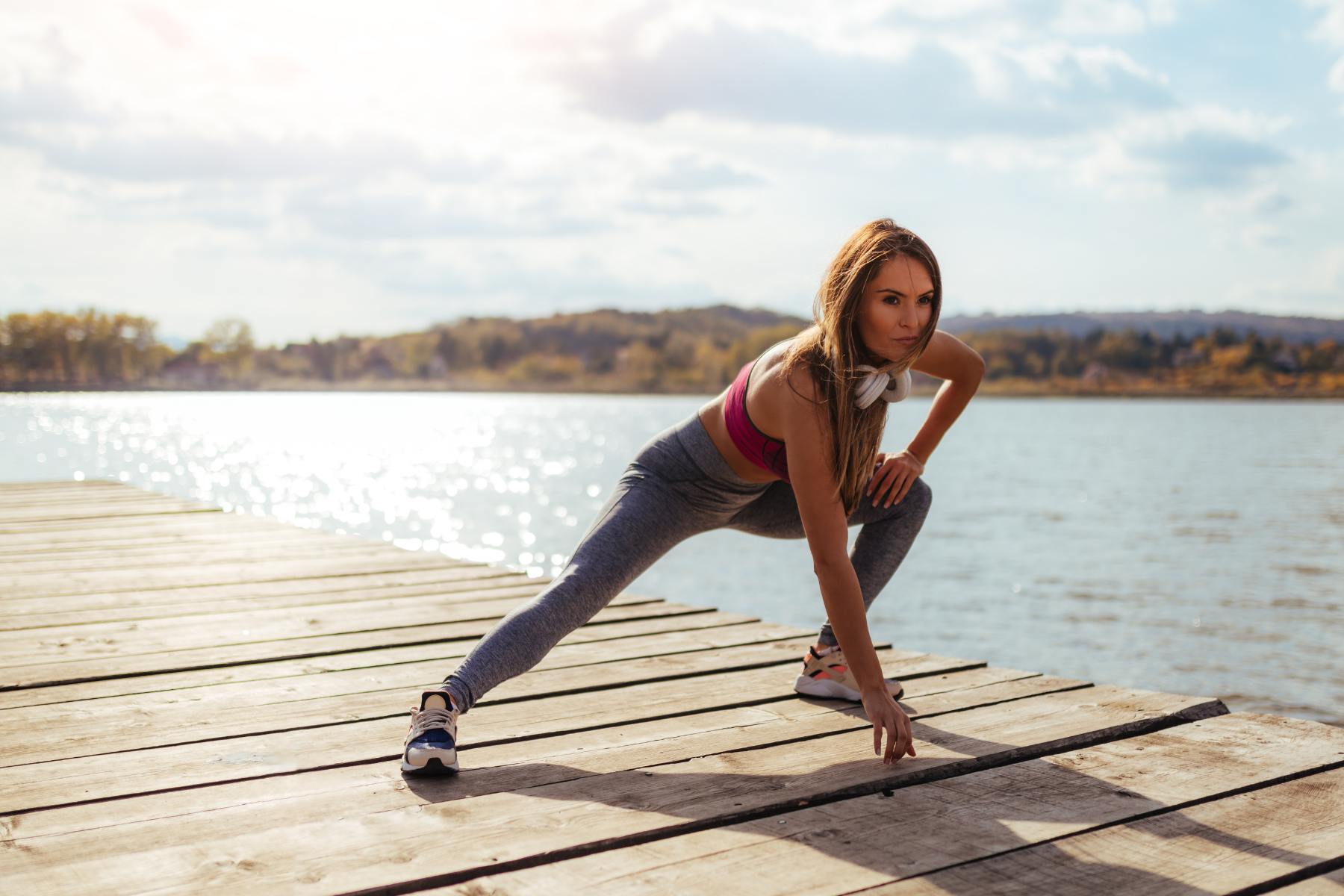
Source: MilanEXPO on Canva.com
Side Lunges with Reach
Purpose: Improves lateral stability and flexibility
- Start by standing with your feet wider than hip-width apart.
- Shift your weight to one side and bend that knee while keeping the other leg straight.
- Reach down towards the bent knee with the opposite hand, keeping your back straight.
- Return to the starting position and repeat on the other side.
Torso Twists
Purpose: Loosens up the spine and improves rotational mobility to generate power in your strokes
- Stand with your feet shoulder-width apart and arms extended out to the sides at shoulder height.
- Rotate your torso to one side while keeping your hips facing forward.
- Return to the center and twist to the other side.
- Repeat in a smooth, controlled motion for 12 repetitions.
Static Stretches for a Post-game Cool-down
The following exercises are some suggested static stretches that you can do after your match.
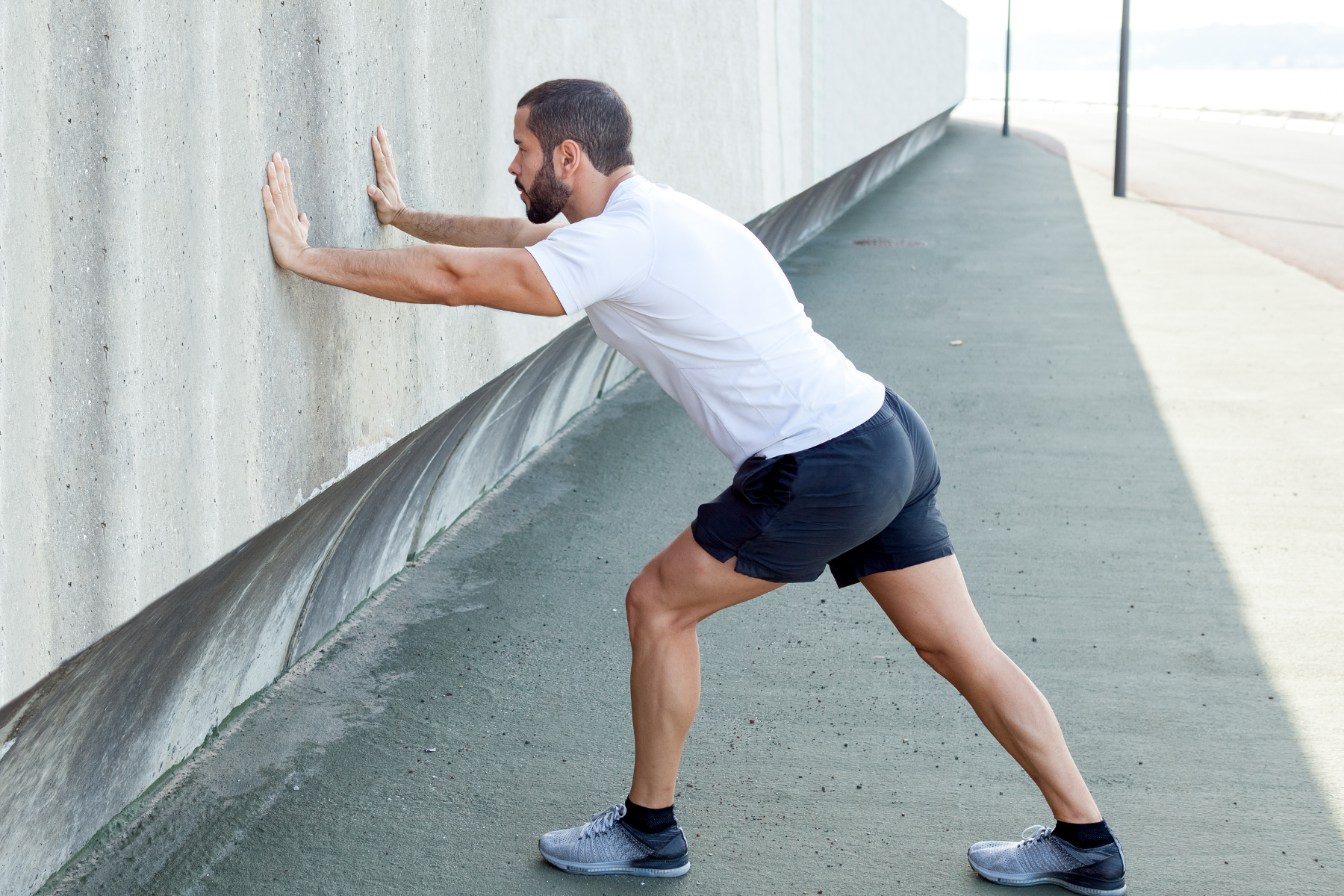
Source: Mangostar Studio on Canva.com
Calf Stretch
Purpose: Reduces tightness and improves flexibility, reducing calf strains
- Stand facing a wall with your hands against the wall at shoulder height.
- Step one foot back and keep it straight with the heel flat on the ground.
- Bend the front knee and lean forward, keeping the back heel pressed into the ground.
- Feel a stretch in the calf of the back leg.
- Hold the stretch for 20-30 seconds, then switch legs and repeat on the other side.
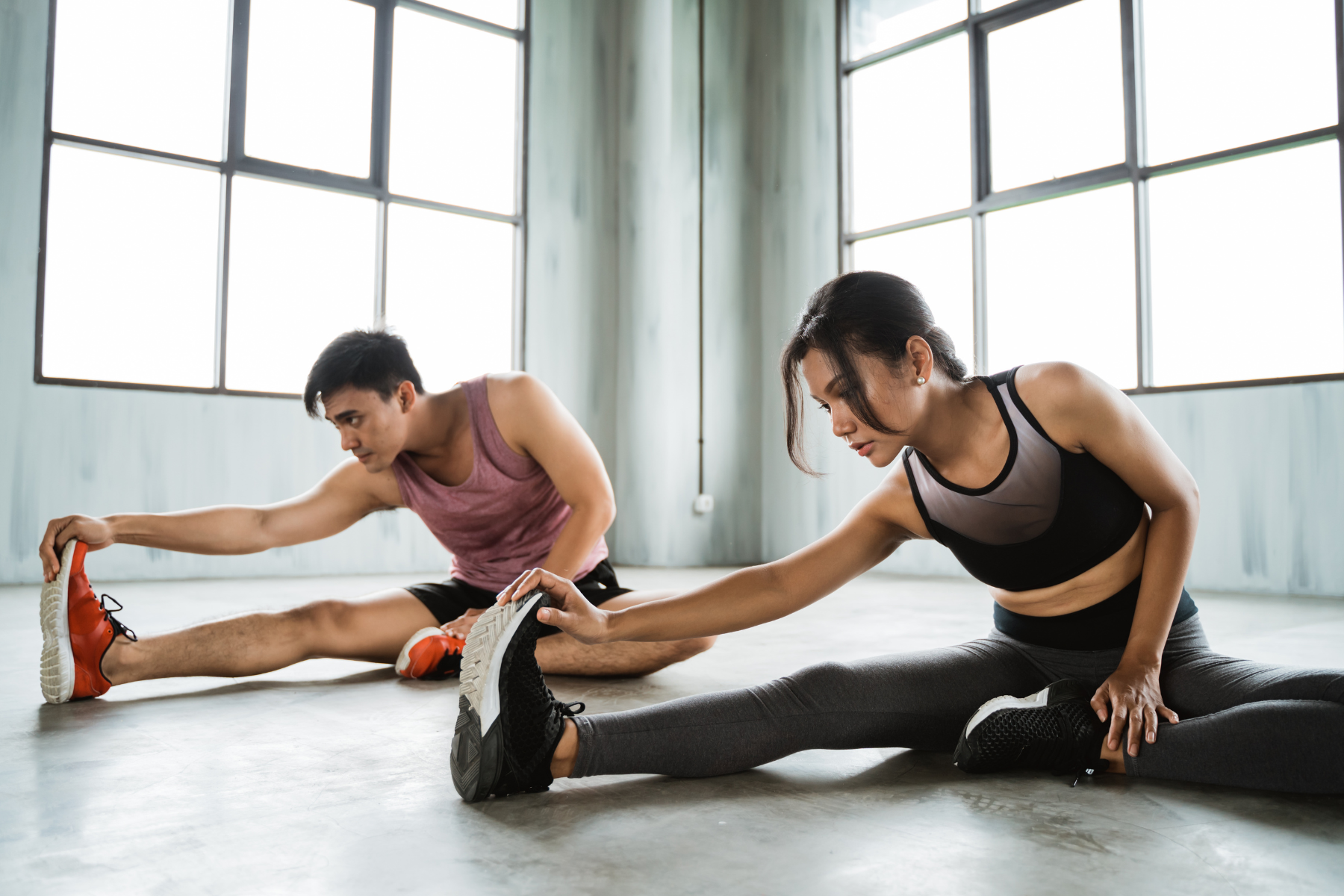
Source: Ferlistockphoto on Canva.com
Hamstring Stretch
Purpose: Reduces tightness and improves flexibility, preventing hamstring strains
- Sit on the ground with one leg extended straight and the other leg bent with the sole of the foot against the inner thigh of the extended leg.
- Keeping your back straight, hinge forward at the hips, reaching towards the toes of the extended leg.
- Hold the stretch for 20-30 seconds, feeling a gentle pull along the back of the thigh.
- Switch legs and repeat on the other side.
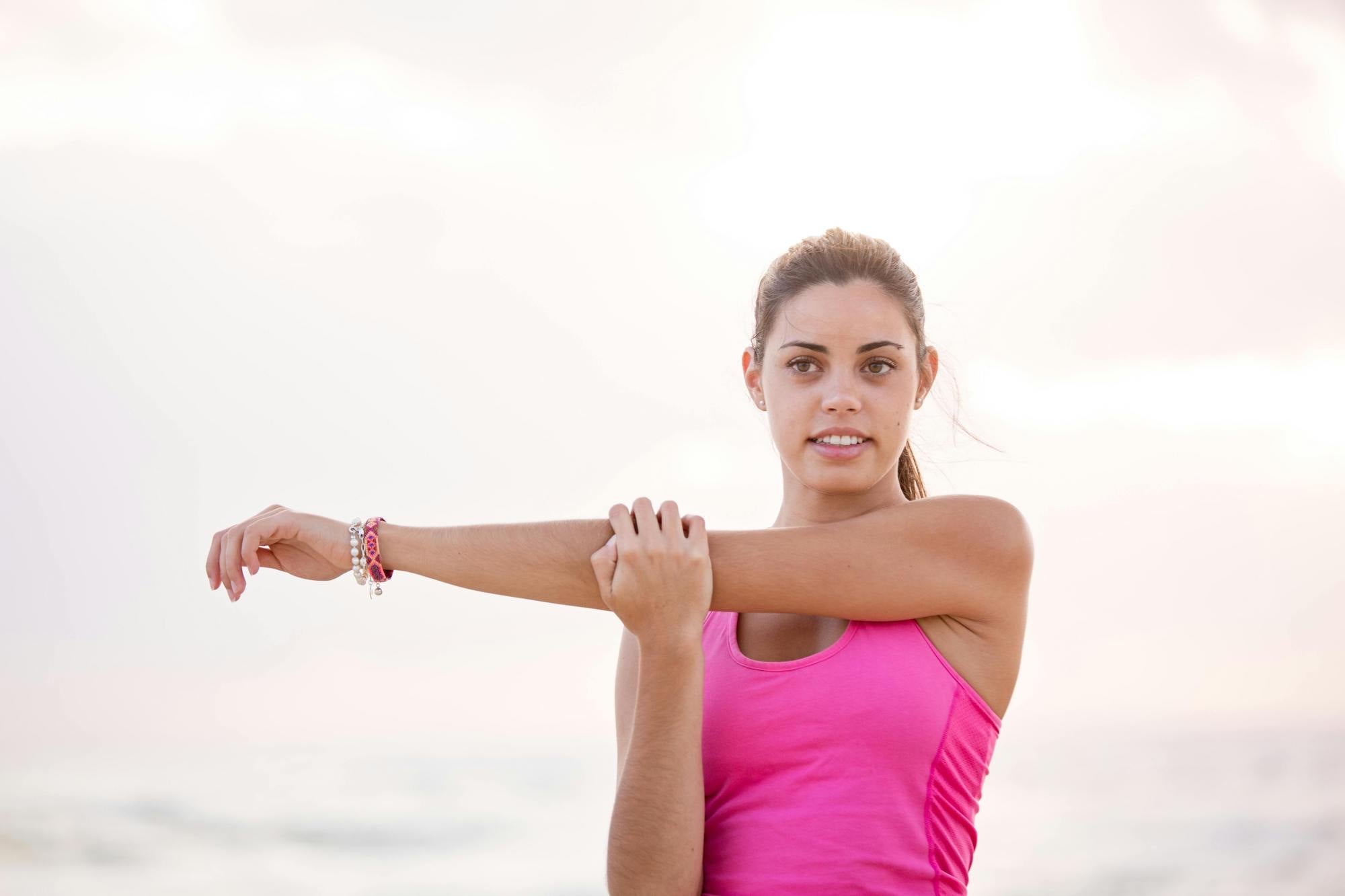
Source: Nathan Cowley on Pexels.com
Shoulder Stretch
Purpose: Promotes relaxation and alleviating tension in the deltoids and rotator cuff muscles after a match
- Stand tall with your feet shoulder-width apart.
- Extend one arm across your body at shoulder height.
- Use your opposite hand to gently press the extended arm towards your chest.
- Hold the stretch for 20-30 seconds, feeling a gentle stretch in the shoulder.
- Repeat on the other side.
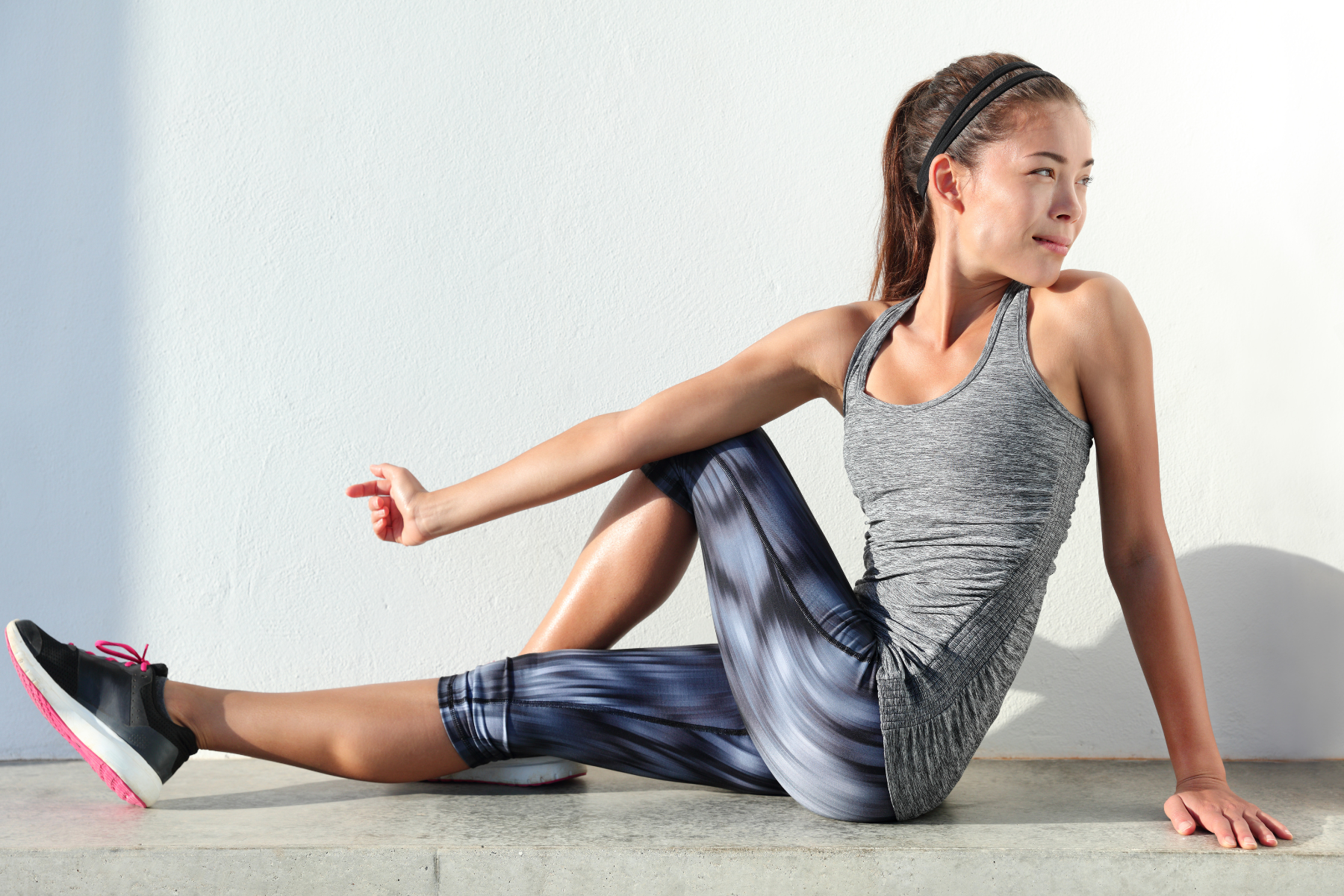
Source: Maridav on Canva.com
Spinal Twist
Purpose: Improves rotational mobility, key for powerful strokes
- Sit on the ground with your legs extended straight in front of you.
- Bend one knee and cross it over the opposite leg, placing the foot flat on the ground outside the extended thigh.
- Twist your torso towards the bent knee, placing the opposite elbow on the outside of the bent knee.
- Use your arm to gently deepen the twist, feeling a stretch along the spine and through the torso.
- Hold the stretch for 20-30 seconds, then switch sides and repeat on the other side.
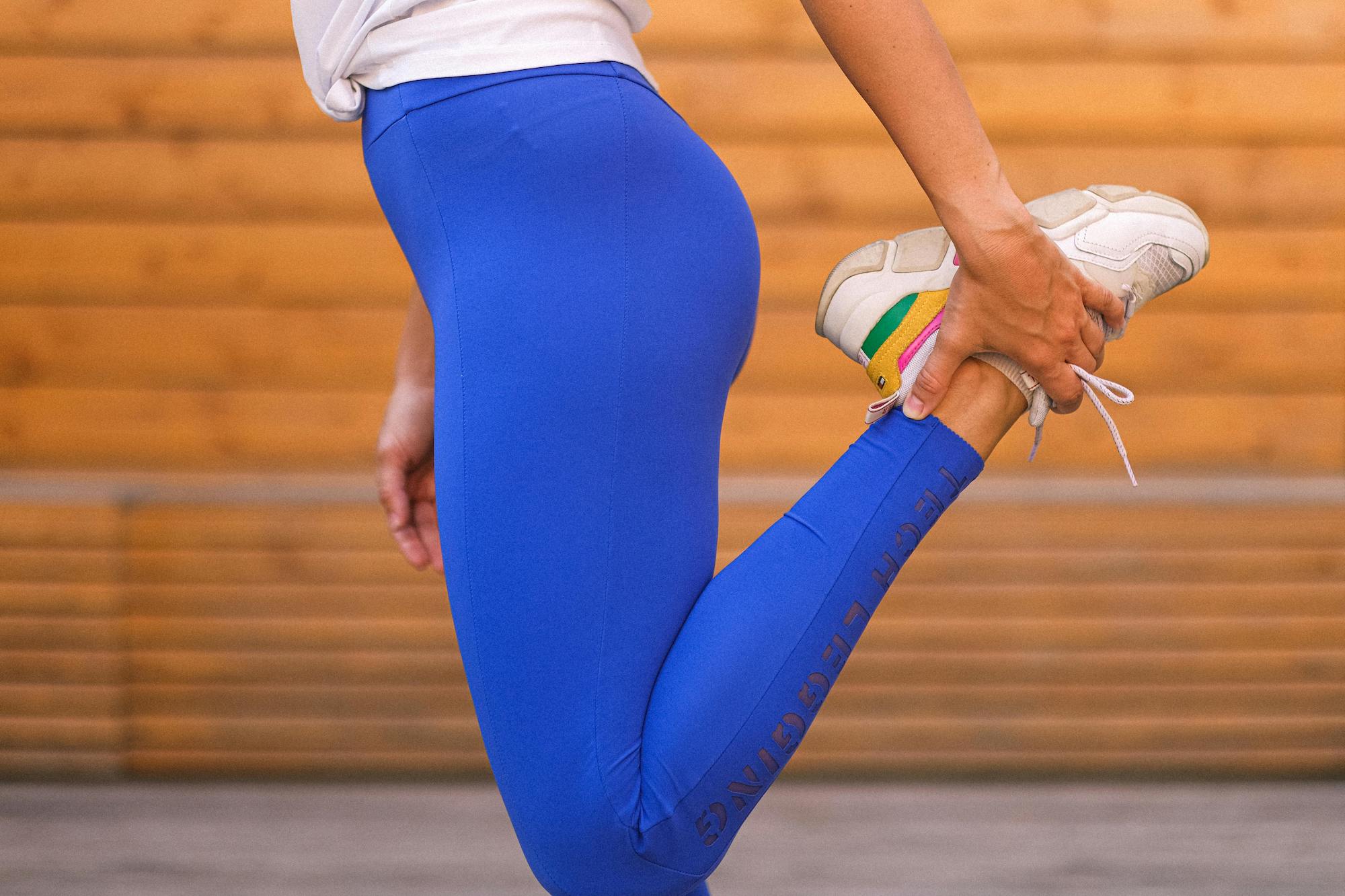
Source: Anna Shvets on Pexels.com
Quadriceps Stretch
Purpose: Relieves tightness and improves flexibility, promoting better range of motion and reducing the risk of injury
- Stand tall with your feet together.
- Bend one knee and grab the ankle or foot with your hand.
- Gently pull the heel towards the glutes, feeling a stretch along the front of the thigh.
- Keep your knees close together and maintain an upright posture.
- Hold the stretch for 20-30 seconds, then switch legs and repeat on the other side.
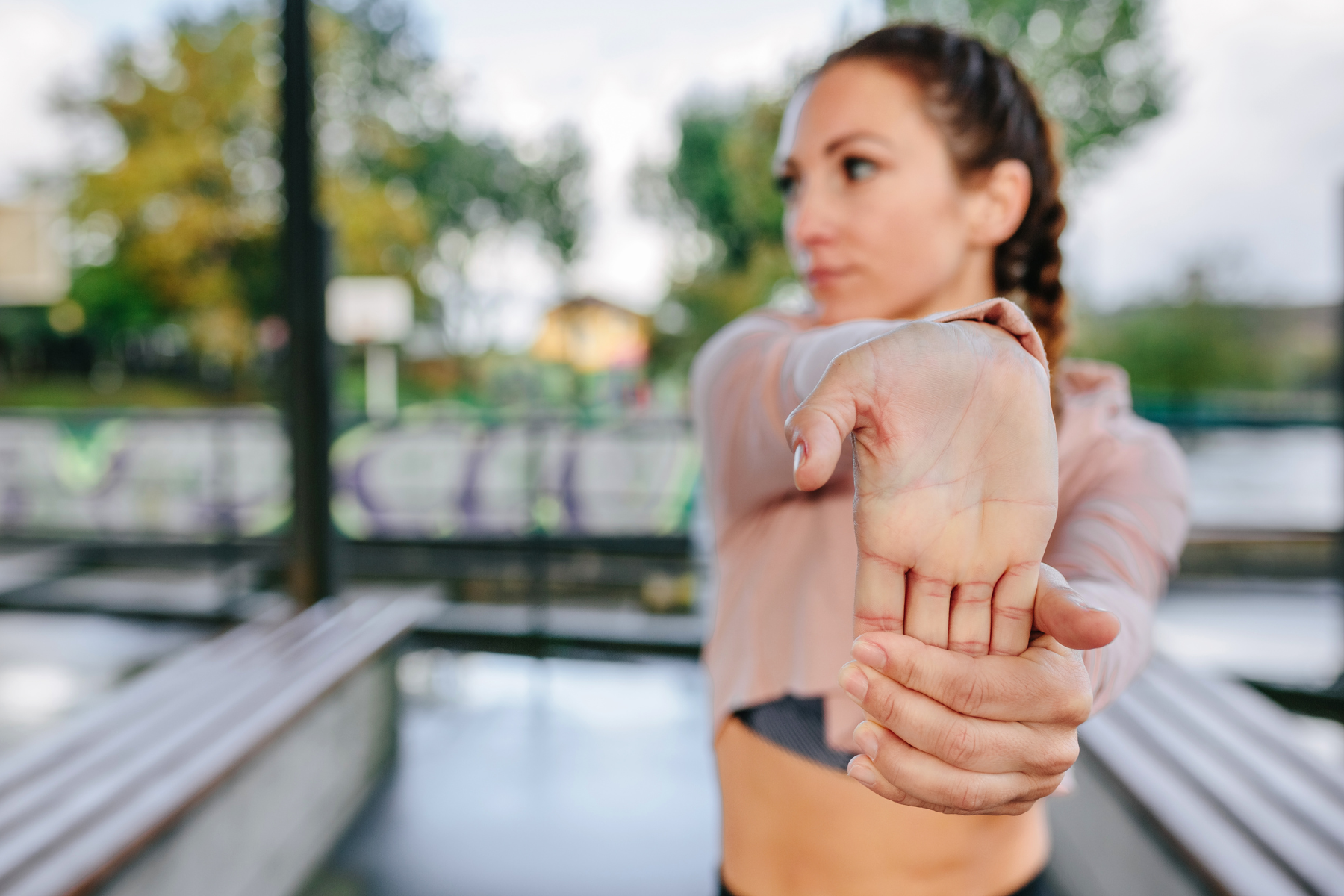
Source: David Pereiras on Canva.com
Tennis Elbow Stretch (Wrist Extension and Flexion)
Purpose: Strengthens writes, which are prone to cause tennis elbow pain
- Stand up tall and bring your arms straight up to shoulder height. (Like Frankenstein)
- With your left hand, grab the outside of your right hand firmly. Allow your right fingers to point inward and your right wrist muscles to flex.
- Hold stretch for 20-30 seconds, then switch hands and repeat on the other side.
Conclusion
Stretching is an important part of a tennis player’s pre-match and post-match routine. Not only will it enhance your game by improving quickness, stability, and strength, but it will also help prevent injuries. Spending 10 minutes doing dynamic stretches before a match and 10 more minutes doing static stretches after a match will help you to be able to continue playing tennis for a lifetime. Your future self will be thanking you for helping to reduce soreness and tension in your body, keeping you in peak condition, and giving you a competitive edge on the court.




